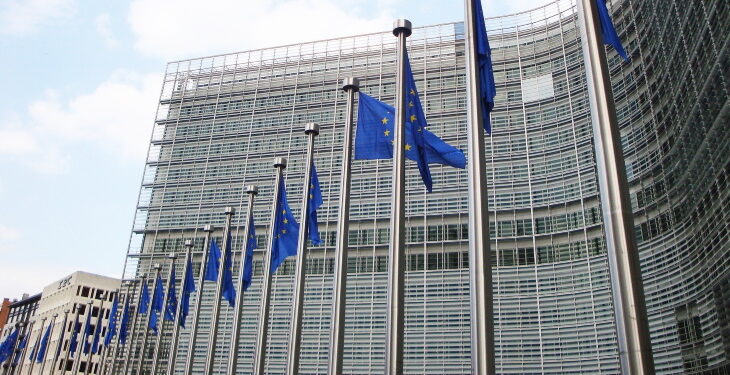The European Commission (Image: Pixabay)
The Alliance met on 15 October in Luxembourg in the margins of the Energy Council with ministers and high-level representatives from 14 EU member states (including the upcoming Polish presidency) as well as the European Commission.
In a joint statement, the Alliance said: “In a changing global geopolitical context, the upcoming 2024-29 Commission’s mandate must ensure the competitiveness and resilience of our economies towards reaching climate-neutrality by 2050 and to address the ‘existential challenge’ that Europe is facing.
“Nuclear energy, alongside renewable energy, is a cost-competitive solution to meet the growing demand for fossil-free electricity and mitigate climate change, thanks to its low-carbon footprint. Nuclear energy is the ready-available fossil-free technology able to produce consistent baseload dispatchable power, ensuring both our collective security of supply and the necessary flexibility in our electricity market.”
In March, the European Nuclear Alliance outlined four pillars of action to set “an enabling European framework to foster a robust European nuclear industry and guarantee the security of supply of nuclear materials, particularly nuclear fuel, for power and non-power uses”. These included: developing access to private and public financing, and exploring the possibilities and benefits of European financing instruments; developing a skilled and diverse nuclear workforce for all civil nuclear applications; scaling-up industrial, research and innovation collaboration across a European value chain through concrete projects; and respecting the national choices of all member states with regards to the decarbonisation of their energy mix to strengthen our unity.
“We commit to intensify our cooperation within the Alliance, with all other like-minded EU member states and with the European Commission on these four pillars,” the Alliance said in their latest statement.
“The benefits of existing and future nuclear power plants go beyond the borders of member states which opt for nuclear energy,” they continue. “Indeed, low-carbon baseload energies such as hydro or nuclear power stabilise our common grid and the entire European electricity market.
“Nuclear energy as well as renewables are true collective assets for the European Union. Due to its baseload profile and low operating costs, nuclear power production creates less volatile market conditions. Without such energies, there is no path for the EU to provide to its citizens affordable, reliable and abundant low-carbon energy while achieving net-zero by 2025.”
The 103 nuclear power reactors currently in operation in the EU provide it with about one-quarter of its electricity.
The current Commission’s term of office runs until 31 October 2024. Between 6 and 9 June, EU citizens voted to elect the 720 members of the next European Parliament. European Commission President Ursula von der Leyen was elected for a second mandate.
The European Nuclear Alliance comprises Bulgaria, Croatia, the Czech Republic, Finland, France, Hungary, the Netherlands, Poland, Romania, Slovakia, Slovenia and Sweden, plus Belgium and Italy as observers.
Source link : http://www.bing.com/news/apiclick.aspx?ref=FexRss&aid=&tid=671281f95554477ab5a23cf013bac713&url=https%3A%2F%2Fwww.world-nuclear-news.org%2Farticles%2Falliance-calls-for-support-from-next-european-commission&c=5884718628498804720&mkt=de-de
Author :
Publish date : 2024-10-18 08:41:00
Copyright for syndicated content belongs to the linked Source.


